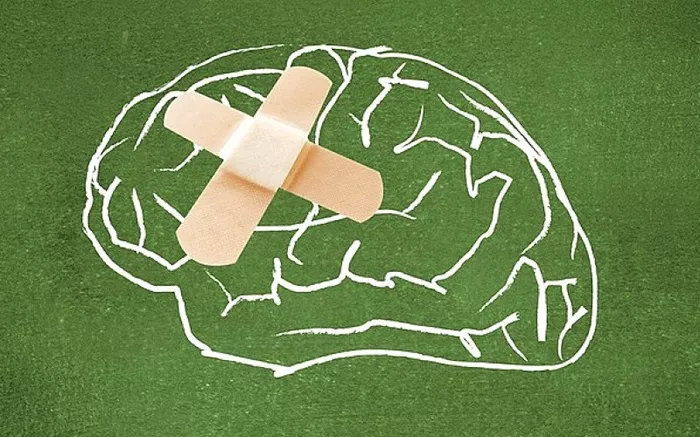The question of whether genetic mental illnesses can be cured is complex and multifaceted, involving a blend of genetics, neuroscience, psychology, and ethics. Mental illnesses such as schizophrenia, bipolar disorder, and major depressive disorder have been shown to have genetic components, leading researchers to explore the potential for genetic interventions. This article delves into the current understanding of genetic mental illnesses, the mechanisms through which they manifest, and the emerging technologies that may pave the way for future treatments.
Understanding Genetic Mental Illnesses
The Genetic Basis of Mental Illness
Mental illnesses are increasingly recognized as having a significant genetic component. Research indicates that many psychiatric disorders are heritable, meaning they can run in families. Twin studies have shown that if one twin has a mental illness, the other twin is more likely to develop it if they are identical rather than fraternal. This suggests a strong genetic influence.
However, it is essential to note that mental illnesses are not solely determined by genetics. They arise from a complex interplay of genetic predispositions and environmental factors. For instance, stressors such as trauma or chronic illness can trigger or exacerbate mental health conditions in genetically susceptible individuals.
Polygenic Nature of Mental Disorders
Most psychiatric disorders are polygenic, meaning they are influenced by multiple genes, each contributing a small amount to the overall risk. This complexity makes it challenging to pinpoint specific genes responsible for these conditions. For example, schizophrenia has been associated with hundreds of genetic variants, complicating the development of targeted therapies.
Genetic studies have identified several key genes linked to mental health disorders. Variants in genes such as CACNA1C and CACNB2, which regulate calcium channels in neurons, have been implicated in bipolar disorder and schizophrenia. However, understanding how these genetic variations translate into clinical symptoms remains a significant challenge.
Current Treatment Landscape
Pharmacological Approaches
Currently available treatments for mental illnesses primarily include pharmacological interventions and psychotherapy. Antidepressants, antipsychotics, and mood stabilizers can be effective for many individuals but often come with side effects and variable efficacy. The development of these medications has largely been based on serendipitous discoveries rather than a thorough understanding of the underlying genetics.
Despite advances in pharmacotherapy, many patients do not achieve complete remission of symptoms. This inadequacy highlights the need for more effective treatments that target the biological underpinnings of mental disorders.
Psychotherapy and Behavioral Interventions
Psychotherapy remains a cornerstone of treatment for many mental illnesses. Cognitive-behavioral therapy (CBT), dialectical behavior therapy (DBT), and other therapeutic modalities can help individuals manage their symptoms and improve their quality of life. However, these approaches do not address the genetic factors contributing to the disorders.
The integration of genetic insights into therapeutic practices could lead to more personalized treatment plans. Understanding an individual’s genetic profile may allow clinicians to tailor interventions that align with their specific needs.
See Also: What Are The Best Home Strength Training No Equipment?
Emerging Technologies in Genetic Therapy
Gene Therapy
Gene therapy has emerged as a promising avenue for treating various genetic disorders by correcting or compensating for faulty genes. In theory, this approach could be applied to mental illnesses as well. Researchers are exploring methods to modify gene expression associated with psychiatric conditions through techniques like CRISPR-Cas9.
While gene therapy has shown success in animal models for conditions like drug addiction and depression, translating these findings into human applications poses significant challenges. The complexity of psychiatric disorders means that simply altering one gene may not suffice; multiple genes often interact in ways that are not yet fully understood.
Ethical Considerations
The prospect of using gene therapy for mental illnesses raises profound ethical questions. Issues surrounding consent, potential unintended consequences, and societal implications must be carefully considered. The idea of “curing” a mental illness through genetic manipulation could lead to debates about identity and what it means to be “normal.”
Furthermore, there is concern about access to such therapies if they become available—will they be accessible to all or only to those who can afford them? The ethical landscape surrounding genetic interventions is still evolving and requires ongoing dialogue among scientists, ethicists, and policymakers.
Directions in Research
Precision Medicine
The future of treating genetic mental illnesses may lie in precision medicine—an approach that tailors treatment based on individual genetic profiles. By identifying specific genetic markers associated with particular disorders, researchers can develop targeted therapies that address the underlying biological mechanisms.
Pharmacogenomics—the study of how genes affect a person’s response to drugs—holds promise in this regard. By understanding how an individual’s genetics influence their response to medication, clinicians can prescribe more effective treatments with fewer side effects.
Advancements in Neuroscience
As our understanding of the brain continues to evolve, so too does our ability to develop innovative treatments for mental illnesses. Advances in neuroimaging techniques allow researchers to observe brain activity in real time and understand how different areas interact during various tasks or emotional states.
This knowledge could inform new therapeutic strategies that combine pharmacological interventions with behavioral therapies tailored to an individual’s unique brain function.
Conclusion
The question of whether genetic mental illnesses can be cured is complex and multifaceted. While advancements in genetics and neuroscience offer hope for more effective treatments, significant challenges remain. The polygenic nature of these disorders complicates our understanding and treatment efforts. As research progresses toward developing targeted therapies through gene editing and precision medicine, ethical considerations must guide these innovations to ensure equitable access and respect for individual identities. While we may not yet have definitive answers regarding cures for genetic mental illnesses, ongoing research holds promise for improving outcomes for those affected by these challenging conditions.
Related Topics



































